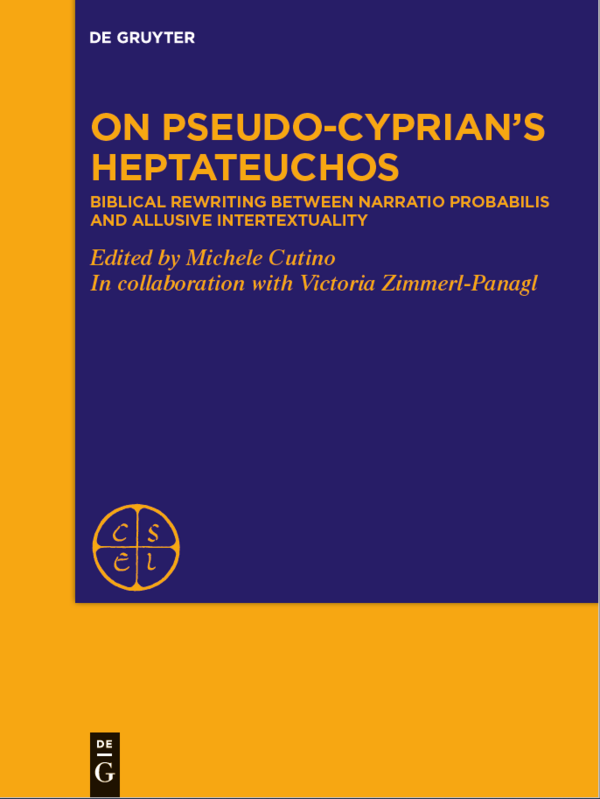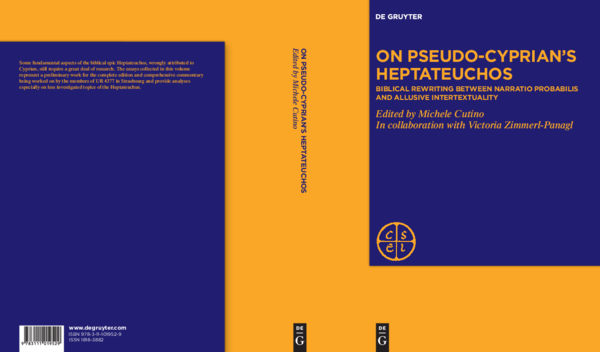Some fundamental aspects of the biblical epic Heptateuchos, wrongly attributed to Cyprian, still need much research. The essays collected in this volume represent a preliminary work to the complete edition and exhaustive commentary on which the members of UR 4377 in Strasbourg are working, and provide analyses in particular of the less studied topics of Heptateuchos.
Though the Heptateuchos is possibly the most organic attempt at poetic rewriting of the Old Testament, attributed to "Cyprian the Gaul" by R. Peiper, the latest editor of the text in CSEL 23 (1891), we do not have a comprehensive analysis of this poem yet that can provide a clear grasp of the poem’s compositional logic, show which of its biblical model’s content was used, and expound the context and purpose of its versification. It is apparent that in many respects the Heptateuchos is still profoundly unknown. For this reason the UR 4377 of Catholic Theology and Religious Sciences of the University of Strasbourg, notably its ERCAM ("Équipe de recherches sur le christianisme antique et médiéval"), with its statutory members and its associate members, is engaged in the publication of a new critical edition of each of the seven books of the anonymous poem of uncertain date, the Heptateuchos, also providing an exhaustive commentary. The essays collected in this volume represent a preliminary work for the upcoming edition and commentary planned by the members of UR 4377 in Strasbourg. Above all, they show how the anonymous author was interested in safeguarding the criterion of the narratio probabilis in the poem, through probable references to Judeo-Hellenistic literature and by refining the exegetical reading of the text with references to classical and Christian poetry.
Published by DE GRUYTER in 2023
Edited by Michele CUTINO, University of Strasbourg and in collaboration with Victoria Zimmerl-Panagl, CSEL Salzburg



